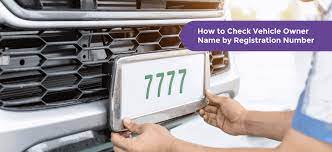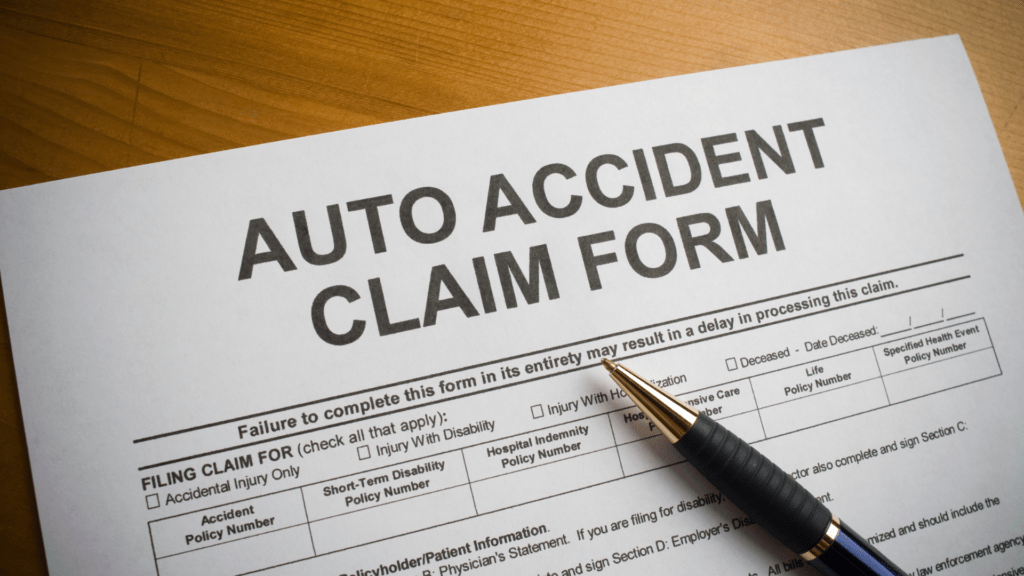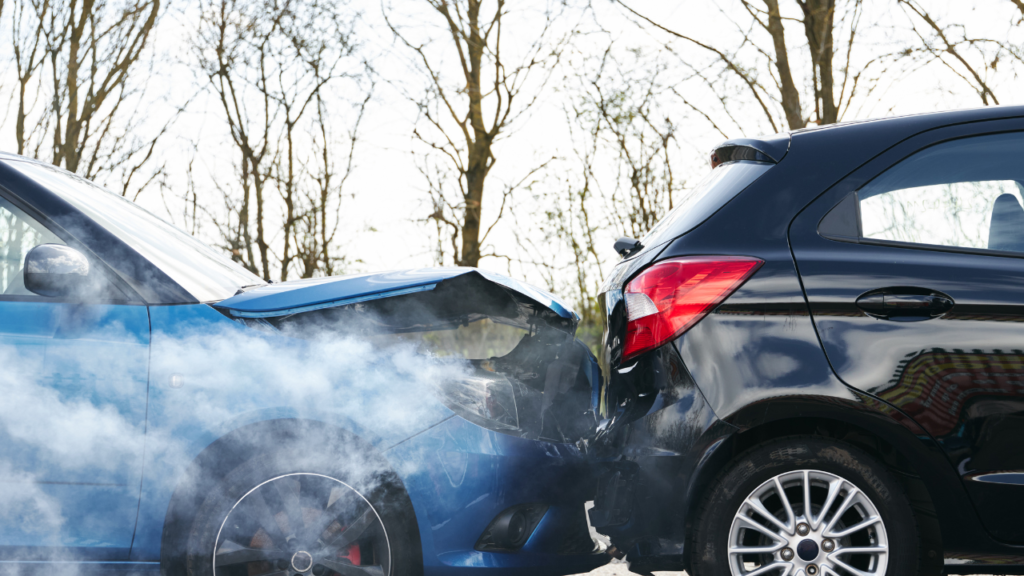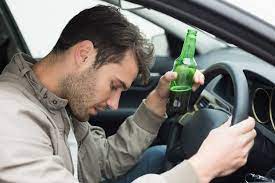Page Contents
1. Introduction
A license plate is there as a means of identifying a vehicle. It is featured on the back and on the front of the vehicle, whether it is a car or a motorcycle. If you are in the US, your license plate will most likely show its date of registration in the middle. The letters “USA” below the registration numbers are typically in smaller print. The point of a license plate is to help law enforcement find a person if there is an issue on the road, such as an accident, or if that person is committing an offense. However, abuse of reporting license plates is a common phenomenon.
Further reading: Can you go to jail for hit and run?
There are several potential reasons why someone might report your license plate, which is something that is generally done when a person feels threatened, harassed or infringed in some way. This could take the form of a road rage incident.

On the other end of the scale, someone could be surveilling or stalking you, and the act of reporting a license plate is a step in that process. If any evidence of physical or mental abuse is provoked, a report to police and the license plate may form part of the evidence helping to build a case. Also, a person could be reporting a license plate attempting to mislead the police either to hide their own criminal activities and get someone else into trouble or simply as an act of malice against an innocent person.
Reporting a license plate to law enforcement will mean that the police records make note of what day and what officer took a report of the license plate having been stolen. So, if it’s a criminal that has had their license plate compromised and reported it as “lost” or “stolen” to try and make the new fake plates the ones that are noted as the suspects’ then that record will show the true criminal act when they are eventually caught.
1.1. What happens when your license plate is reported
When your license plate is reported, law enforcement will be dispatched to begin an investigation. You will be stopped and the police will try to verify your registration and plates to know if the vehicle does belong to you. If the investigation does continue, you might receive a citation to go to court. The investigation will also become part of your car’s records and any police who scan your plates will be informed that the plate has been reported, and they will see the reason why. You also might start to be watched by the police.
Further reading: Is it illegal to chase a hit-and-run driver? and Punishment for a hit and run?
If you think that you are being followed or you see police cars near to your home, workplace, or cars when you drive, your plate might have been reported. If a plate is reported stolen, the vehicle will be removed from the database that police officers use. This means that if your plates are scanned, nothing will show up on the police officer’s screen and they’ll have no reason to stop you. So if you do find that your plates have been reported stolen, it is important to contact the police and tell them what’s happened, as well as making sure that you’ve got all the documentation to show that your plates do belong to you and that you’ve done nothing wrong.
1.2. Why someone might report your license plate
There are several reasons why someone might choose to report your license plate to the police. The most common reason is because they believe that your vehicle was involved in an offense or an incident that caused them to be upset, worried or angry. For example, victims of road traffic accidents might report the offending driver’s license plate to the police. Equally, witnesses to any kind of crime or suspicious activity might also take this step. In addition, drivers or passengers who are angry or upset as a result of a disagreement or altercation with you might report your license plate to the authorities out of spite.
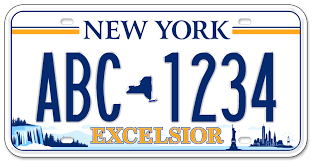
It is not necessary for the person who reports your license plate to the police to have actually witnessed what they believe is an offence or an incident. In many cases, the police will accept reports from members of the public who have no direct knowledge of any wrongdoing.
Further reading: Why Do I Need to Hire a Hit-and-Run Accident Attorney?
This is because the police have a responsibility to investigate and to provide protection and support to members of the public who feel upset, worried or threatened as a result of something which has happened on the roads. However, the police will scrutinize any such reports carefully and will make sure that they gather the evidence necessary to provide a proper and accurate assessment of whether there is substance to the report or not.
It’s always the case that the police will not accede to requests from members of the public to provide updates or information about what action, if any, has been taken as a result of reports made to them. The outcome of any subsequent investigation or inquiries is a matter between the police and the person against whom the report is directed. The police simply will not have any dialogue or discussion with anyone who makes a report about what happens, as this would undermine the proper functions of the police service.
1.3. The potential consequences of a reported license plate
A reported license plate can lead to police attention for traffic violations that you haven’t committed and increases the possibility of becoming a victim of hit-and-run or vandalism. Further, you may find that car insurance companies may raise your premiums or refuse you coverage when you want to insure your vehicle in the future. In serious cases, a reported license plate could even lead to the police seizing your vehicle.
Plus, if your car is placed on the list of uninsured, unregistered, or untaxed vehicles, the Driver and Vehicle Licensing Agency (DVLA) will soon begin the process of clamping or even crushing your car. This is obviously going to cause a huge amount of inconvenience to most people.
On top of that, if your car has been reported stolen, you may find that officers think you have fabricated the theft. When a car has actually been stolen, the thief may take the plates from one car and put them on the stolen car, and the legitimate plate owner may end up with a reported plate warning as a result.
False reports of stolen cars waste police time and potentially put the public in danger as the police won’t actually be looking for the right vehicle when they could be. This repeated misuse of the police service is called wasting police time and is a criminal offense. If the person making the false theft claim is found guilty, they could be sentenced for up to six months in prison and could be fined for doing so.
Also, considering the fact that the police and DVLA will keep a record that you’ve been warned for having a reported plate, fraud enforcement agencies may investigate and suspect that you were involved in and caused the report. In accordance with the Crime and Disorder Act 1998, when there’s information that the fraud is being conducted, certain authorities have the power to access investigation powers. And if there are any unusual activities on the vehicle, it might be seized and examined to see if a fraud is being committed. Therefore, it could potentially become a long process to prove innocence when your identity is compromised because of a fraud warning.
2. Signs that your license plate has been reported
One way you can tell if your license plate has been reported is through the visible presence of law enforcement near where you live, work, and drive. If you notice a larger police presence around you for no apparent reason, this could be an indicator that your license plate is on a hot list, much like a car reported stolen. While the police are using automatic license plate readers, they can easily query the entire list of stolen cars that day; so to have an officer personally tailing someone is not just a waste of manpower, but also a very blatant “I’m following you” kind of way.
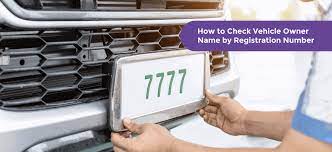
There’s a tactile difference to normal traffic stops too. If an officer is waiting for something, most of the time they will be quite idle in their car with the overheads on, indicating nothing more than a very early stage investigation, or they will get out and initiate a high energy top side of the car to make sure a fleeing suspect doesn’t surprise them by charging a shortcut. If you’re under more serious investigation – as is likely the case if you’ve been reported – the officer will be ready to deploy a significant amount of force at very short notice; they’ll be in the car, it will be turned off, but the car won’t be idle as they’ll be in a position to move off and ram another car if the situation arises.
Further reading: 10 reasons you need a hit and run accident lawyer
These are good indicators that the officer tailing you is probably making more than a traffic stop tonight. However, it’s important to remember that officers can perform license plate queries at any time if they have a legitimate and legal reason to do so – this step closer in a traffic stop can’t on its own confirm if you’ve been reported. These observations serve more to indicate whether someone has taken a personal interest in your movements instead.
2.1. Increased police presence around you
In theory, a report against your license plate will be used by the police to keep an eye on your vehicle and you. This means that in the event your license plate has been reported, there could be an increased police presence around you. This is one of the signs you can use to confirm if your suspicions are right. Therefore, be mindful of any changes in your environment, particularly any time you’re driving or at any point when you park your car. Increased police presence may become very noticeable to someone who is the subject of a police investigation.
So for example, if you start to see police cars driving by your house more frequently than you might expect, this could be a sign that an investigation into your alleged involvement in some activity is ongoing. Increased police presence could manifest itself in different ways. These may include more frequent visits from the police and unmarked police cars parking or cruising near where you live or work.
Also, you might notice more police cars following you closely or pulling behind you as you exit a business or parking lot. This could happen even if you’ve done nothing wrong and for no obvious reason. Furthermore, in case your friends, neighbors, or relatives observe an unusual number of incidents of police cars parking outside, police officers approaching them with questions about your activities, or any kind of police behavior that appears to target you, you should take that as a major concern and consider verifying yourself. Increased police presence could also relate to an existing or potential threat to your safety.
Therefore, there are, by organic extension, positive obligations on the police to make themselves available to a person who may need police assistance. Such positive obligations on the police might also support an argument that covert police observation of a person whom they are obliged to protect is unlawful. In a wider context, the police owe negative obligations to the public at large in relation to the rights and freedoms of the individual, including the right to respect for private and family life under Article 8 of the European Convention on Human Rights which has effect through the Human Rights Act 1998. Increased police presence that creates situations mentioned above is potentially not only a sign but also a breach of the said provisions by the police officers. Such potential breaches could strengthen your arguments in defense of the allegations made against you and your innocence in the long run.
2.2. Receiving traffic violation notices you didn’t commit
One of the most obvious signs that your license plate has been reported is receiving traffic violation notices for offenses that you did not commit. If your license plate has been reported as part of a criminal act, there is a possibility that someone may be using your license plate unlawfully. In some cases, this may be due to a mistake in the report. However, the misuse of a license plate may not be uncovered until a violation has been committed. This typically results in traffic violation notices and penalties being sent to your home address by the relevant law enforcement agency or court. If you receive such notices for an offense you know you did not commit, this might be a sign that your license plate has been reported.
It is important to take this seriously and gather evidence to prove that you were not involved in the traffic violation indicated. If you have confirmed that your license plate has been reported by signs such as this, it is important to report the situation to the local police. If you received the violation notice from a certain law enforcement agency, you may wish to report the situation there as well. This is important for creating a paper trail to document the incident and to show that you have taken steps to address the matter. If your efforts to clear the violation through the proper channels did not resolve the issue of your license plate being misused, you should look to get advice from the Department of Motor Vehicles (DMV).
This body is responsible for registering vehicles and monitoring their movements, so they should be able to offer help and advice to guide you through the process of verifying if your car has been reported. Some states also have electronic interfaces set up that allow law enforcement agencies and the DMV to communicate violations, so this should help to resolve any illegal use of your license plate quickly and efficiently. In addition, the DMV will be able to advise on whether it is necessary to take further steps such as applying for a replacement license plate number.
2.3. Unusual attention from law enforcement officers
There is another sign that your license plate has been reported: unusual attention from the law enforcement officers. If you are being constantly pulled over for routine checks or minor traffic violations, your license plate may have been already flagged in the police system. Law enforcement officers do not have the authority to conduct searches without reasonable suspicion that you are involved in a criminal activity, and their routine checks should not result in a search every single time.
Sudden unusual attention, such as being pulled over and searched at a higher frequency than the rest of the traffic, could be a sign that a member of the law enforcement has identified your vehicle and intends to create opportunities for a more thorough search of you and your belongings. Law enforcement officers are authorized by law to stop a vehicle and detain the driver in order to issue a traffic ticket or a citation – it is part of their routine duties to conduct searches during these stops if they have a probable cause to believe there is evidence of a crime in the vehicle.
However, if the search does not produce any evidence of a violation, you will not be approached by the officer requesting permission to conduct a search and you will be free to leave. If you are faced with the situation that a law enforcement officer asks you to consent to a search of the vehicle, remember that you have the right to refuse the request. Also, if an officer does conduct a search and no evidence of a crime is found, the search may be subjected to judicial scrutiny at a later date and it is important to remember the outcome of the search – in other words, try to gather as much as information as possible to prove that you are being unfairly targeted as a result of a reported license plate.
3. Steps to confirm if your license plate has been reported
Considering the grave consequences and implications of a false report to your license plate, it is crucial to find out if your license plate has really been reported. The following steps may be taken to confirm if your license plate has truly been reported for any wrongdoings. First and foremost, it is advisable to contact the local law enforcement agency to verify the veracity of the report.
This is particularly important if you were notified of the report by the police or any other reliable sources. Local police officers may be able to provide you with information about whether your license plate has been reported, although they will not be able to disclose details about who made the report. In more serious cases, the police may conduct investigations to follow up on the report. After you have called the police department, it’s also a good idea to visit in person. An in-person conversation with a police officer or staff may help to get more information if the report has progressed and the matter is being taken seriously by the police.
This is especially useful if you have a genuine reason to believe that the report was made out of malice, for example from someone who wishes to cause trouble for you. However, if the report is being taken seriously and you are a suspect of the matter, bear in mind that making false statements or hindering the police investigations in any way may constitute criminal offences.
3.1. Contacting the local law enforcement agency
You can contact the local law enforcement agency to ask whether your license plate has been reported. To do so, you will generally need to visit the office in person and speak to an employee – phone calls may not be an option, and law enforcement employees typically cannot disclose information about reported license plates over the telephone.
Reporting protocol and privacy rules may also vary by city and state, so it is best to visit the appropriate office to obtain accurate information. When you approach the front desk, you can explain that you suspect your license plate has been reported and ask them to check the number for you. It would help to prepare a brief and simple explanation in advance, as well as your identification card and vehicle registration in case you need to prove that you own the vehicle. If you are given information about a report on your license plate, such as the date and the nature of the report, make sure to take note of them. You may need these details for insurance or legal purposes later on.
If it turns out that your license plate has indeed been reported, ask the employee for any relevant documentation in regard to the report. This may include a case number or a copy of the report, both of which you can use to make a record of the situation. In some scenarios, you may even be able to obtain a written statement or verification that there has been a report on your license plate, which helps substantiate your innocence when you present this information to the police, insurance providers, legal professionals, and so on.
3.2. Checking with the Department of Motor Vehicles (DMV)
When you check with the DMV, you are enlisting the help of a state-run agency that is responsible for vehicle registration and driver licensing. It is essential to be aware that the information you receive from the DMV is limited by privacy laws designed to protect individuals’ personal information. This means that you will not be able to check if a license plate has been reported just by asking for the information at a DMV office. Indeed, under the Driver’s Privacy Protection Act, the DMV is not allowed to disclose personal information to members of the general public.
However, in certain states, it is possible to access the DMV database for the purposes of completing a record search. This usually involves filling out a specific form and paying an administration fee, as well as providing a legitimate reason for the search. For example, you may have to select the type of record that you require – in this case, you would choose “vehicle records” or “license plate records”.
These records are generally only available to certain groups such as law enforcement, licensed private investigators, and insurance companies. As a result, you may have to specify that your request for information should be part of an ongoing criminal or civil investigation, or that you require the data for the purposes of preventing fraud, among other options. If the DMV search for license plate details proves successful, then it is likely that information will be turned over to the appropriate law enforcement agency. Furthermore, any data provided by the DMV will become a part of the official police investigation and court records relating to the reported license plate.
It is worth noting that many states now have specific access to information laws in place which allow for limited release of DMV data for research or statistical purposes. For example, the New York State Department of Motor Vehicles allows universities, government agencies, and certain contractors to obtain general statistical reports and extracts from the DMV database. Such information can be used for activities including research projects and evaluations of public interest, safety and health issues.
However, information identifying specific individuals or linked to personal information cannot be released. This should prompt some caution if you come across websites or online services that claim to offer access to DMV records for free. If there is suspicion of potential breaches of data protection or privacy laws, the appropriate authorities such as the DMV or law enforcement should be made aware.
3.3. Hiring a private investigator for further verification
Another viable way to verify if your license plate has been reported is by hiring a private investigator. Private investigators are professionals equipped with a wide range of skills and resources to access information that may not be available to the general public. They are capable of performing thorough, exhaustive searches to get to the bottom of the matter. However, remember that hiring a private investigator is not cheap.
Their services typically come with a high price tag, as they charge an hourly rate for their time and effort. On top of that, the costs of investigation, including travel expenses and information retrieval, will also have to be borne by the client. What’s more, there is no guarantee that engaging a private investigator will bear results satisfying the money and time spent. It may turn out that, after a thorough investigation, no conclusive evidence proving that your license plate was reported will be found. Nonetheless,
the decision to hire a private investigator remains popular among those having the necessary financial means to do so, because of the high chance of success associated with their professional expertise. Reputable private investigators can be found in the local phone directory and online. Before hiring a private investigator, always check for credentials and licensing information to make sure that you are working with a competent, trustworthy professional.
3.4. Utilizing online resources and forums for information
You can now use the power of the internet to find information on your license plate. There are now websites and forums, like “Ripoff Report” or “Complaints Board”, where you can post details of your situation and ask for advice. Another useful method can be conducting a Google search for your license plate, specifically within the ‘News’ section.
Typing your license plate number within quotation marks may help to narrow down the search results to only those which are directly relevant to your situation. Be warned that in doing so you are directly verifying your license plate as reported with the police or media. If you are worried about what has been said about you and your vehicle online, you can look at removing such content through “Content Removal Services” like “Webcide.com” or others.
These can help to back up claims and remove content that can be directly linked to a campaign of harassment or defamation stemming from reporting false crimes to the police. However, it is important to note that the legitimacy of such services has been called into question and in itself, using content removal methods can verify your license plate as spoken about, potentially working against your objective of staying private. It is always recommended to contact the online platform directly and report content through their policies.
4. What to do if your license plate has been reported
In addition to reporting the matter to the police, it is advised that you gather evidence to prove your innocence. This can include any receipts or alibis that show that you were not involved in any criminal activities at the specific date and time the reporting party claims it took place. You may also consider providing a report to the police that details how your license plate has been reported and keep a copy of the report for your own records. It can also be helpful to take photographs and keep a record of the conditions of your vehicle.
This can help to keep track of any damage to your vehicle following the report which may provide evidence that any criminal activities that it is linked with were not caused by you or are not actually present. If your license plate has been reported, seeking help from professionals may be a good idea. It is important to seek advice from a solicitor or attorney who specializes in criminal law, as they will provide you with the most accurate and relevant information to your specific case. They may also give you advice on how to report the matter to the police and provide evidence, and act on your behalf if the matter goes to court.
In the early months following a license plate report, it is advisable to take precautions to protect both yourself and your vehicle from any potential criminal activities. This includes parking your vehicle in well-lit or busy areas, and not parking your vehicle in the same location each day or for long periods of time in order to reduce the risk of vandalism or theft. You may also take extra steps to secure your vehicle such as fitting a steering wheel lock, alarm or immobilizer to help deter any criminal activities. These steps can also help to provide further evidence of your innocence if your vehicle is targeted or tampered with.
4.1. Gather evidence to prove your innocence
If you have confirmed that your license plate has been reported to the police, it is important to gather evidence to prove your innocence. This can include various types of evidence, such as video footage, photographs, documents, witnesses’ contact information, and any relevant information you found through public records. For example, if your vehicle has a dash cam, you can review the footage around the date and time you suspect your license plate was reported and see if there’s anything unusual or any sign of tampering with your vehicle.
Similarly, you can take photographs of your vehicle and the surroundings to gather evidence of any suspicious activity, such as someone trespassing your property to put your license plate on a different vehicle. You can also get a list of any traffic citations issued to your vehicle from the DMV and check if there’s any that you were not aware of, as these would be important evidence supporting your defense. Once you have gathered evidence, make sure to take clear photographs, videos, or photocopies of them and securely store the original copies.
Report the evidence along with a detailed statement of what has happened and the steps you have taken to the police as soon as possible. If you are unsure about what evidence you should collect, you show all the gathered evidence along with a detailed account of what happened to an attorney for advice. However, it is crucial to be thorough as the burden of proving your innocence will be on you.
4.2. Report the situation to the police and provide evidence
If you believe that your license plate has been wrongfully reported, you should report the situation to the police immediately. Call the local police department that has jurisdiction over the reports. You may have to provide the police with a written report and any information you have about who is making the false reports. Visit the police station in person and ask to speak to an officer if you can. Identify yourself and your reason for being at the station right away. Take notes on the name of the officer you spoke with and the nature of the conversation.
Ask the officer to whom you should address a written report regarding the false claims of the reported license plates. The police department will document your report and launch an investigation. If your license plate was reported for a hit-and-run accident that you were not involved in, the police may provide you with a letter confirming that no police report for that accident exists. This may help you to correct any damage to your legal record that is the result of the false report. A written communication from a police department is given great credence when given to employers, insurance companies, and the courts.
Make sure to keep an organized file of all of your communications with law enforcement including copies of any written report you make, notes of any meetings, and any responses from the department. This can be important if you need to convince others that you are the victim of harassment based on false reports. Work with law enforcement to identify and neutralize the person wrongfully reporting your license plate. If you have information that might lead police to someone placing false reports, provide them with any proof and ask that changes be made to the license plate reports system if necessary to prevent further misuse.
Also consider contacting the DMV to ask what it can do to prevent people from making bad reports in the future. Keep in mind that interfering with law enforcement work or making false statements may subject you to criminal liability. It is important to be completely honest and cooperative in any police matter related to a reported license plate so as not to put you at risk of arrest and prosecution. Make sure to keep a collection of all the evidence you have that helps to support your case about false reports on your license plate. The police may find the evidence useful and may also launch their own investigation into those making false claims.
4.3. Seek legal advice and representation if necessary
If you are being suspected or accused of criminal activities as a result of your license plate being reported, it is advisable to seek legal advice as soon as possible. An attorney who specializes in criminal law will be able to guide you through the process and ensure that your rights are protected. If you already have a criminal defense lawyer, this would be a good time to get in touch with them.
Your lawyer will assist you in finding out what is going on and can take the appropriate steps to resolve the situation, which may include contacting the investigating law enforcement agency. If you do not have a lawyer, you can get legal advice from the duty counsel or a legal aid lawyer. The duty counsel is a lawyer available at a courthouse to help you understand your legal rights and the options that are available to you. Legal aid provides confidential legal services, advice, and representation by lawyers for people who cannot afford to hire a lawyer.
Not only that it is important for you to seek legal advice, but it is equally important for the legal process as well. A lawyer who is experienced in criminal law will be able to represent you and make submissions on your behalf in court if charges are laid against you. In addition, if you had a belief that another person involved in the criminal offense, your lawyer will be able to provide information about that. This could influence the decision of potential charges against you by the police.
4.4. Take precautions to protect yourself and your vehicle
You may want to show these precautions to your lawyer to ensure that they are appropriate to your situation. Always discuss with your attorney the proper measures for protecting your safety and privacy.
Finally, consider installing a motion detection light by where your car is parked. The sudden flood of light can often surprise and deter minor criminals before they can do damage to your car. If you live in a situation where a car alarm can be set off accidentally or does not receive attention, a bright well-placed light can be a better choice. Also, some lights can be set up to silently trigger video recording to help identify suspects.
If you have a garage, park your vehicle inside. In the alternative, consider a movable lock post for your car. With a movable lock post, you place a rounded metal post on the ground where your car is parked during the day. At night, you open the lock and move the post off the pavement so that you can park. By blocking your car in, a thief cannot drive your car away.
If your name is in the phone book, consider having it removed. While delisting may not be possible in some areas, many phone companies will remove your information from the online directory commonly used for reverse address or phone number searches. Also, look up your name and address using online search engines and remove postings that provide your address. This can make it harder for your information to fall into the wrong hands.
To protect against further misuse, consider changing your license plate immediately. To do so, you generally need to fill out a form at your local DMV office. In some cases, it may be possible to do this online. Keep in mind that you need to notify your insurance company of the new plate number. Do not drive an unregistered vehicle with the new plates. Additionally, your insurance company may require verification of your new plates, and removing the old plates may be a condition of renewing your policy.
